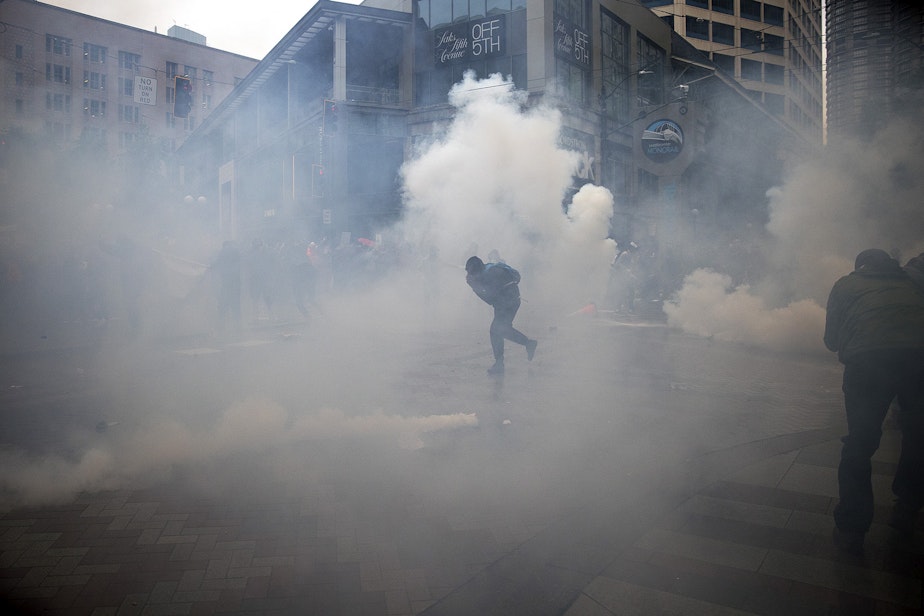These doctors say: no more gas

How tear gas spreads COVID-19. What the House of Representatives is doing to reform police. Who’s allowed to wield violence in America. And youth-led protest in Burien.
Individual segments are available in our podcast stream or at www.kuow.org/record.
Peter Chin-Hong, tear gas open letter
Tear gas is extremely harmful to the lungs – so what happens when it’s used against protesters in the middle of a respiratory pandemic? An open letter that began at the University of Washington galvanized infectious disease specialists and epidemiologists to call for a moratorium on its use during the current protest; UCSF’s Peter Chin-Hong edited that letter.
Representative Pramila Jayapal on police reform
Over the past week and a half, calls for police reform have risen to a fever pitch. A new House bill calls for a litany of changing to American policing; to find out what’s in the bill, Bill Radke spoke with Representative Pramila Jayapal.
Kellie Carter Jackson, "The Double Standard of the American Protest"
The Boston Tea Party is seen as a seminal event in the birth of our nation, but last week the president condemned property destruction at Target as un-American. What’s the difference? The identity of the rioters. "If violence is a political language, white Americans are native speakers. But black people are also fluent in the act of resistance." So writes Kellie Carter Jackson in her latest piece for The Atlantic, “The Double Standard of the American Riot.”
Youth-led Burien protests
Youth-led protests in Burien have an element unusual to the Puget Sound region: a close rapport between elected officials and activists. KUOW’s Joshua McNichols went to find out why.

